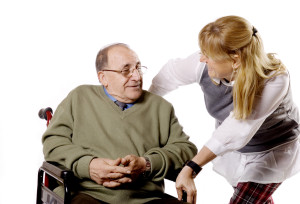November 18, 2015
 Most retirees are now more concerned about receiving an Alzheimer’s diagnosis than they are about getting cancer or diabetes, according to the Age Wave/Merrill Lynch’s 2014 study. What troubles retirees the most about getting Alzheimer’s is the impact it will have on their family and their own loss of independence. How will my family cope? How will I change, both mentally and physically? What type of care will be needed as Alzheimer’s progresses?
Most retirees are now more concerned about receiving an Alzheimer’s diagnosis than they are about getting cancer or diabetes, according to the Age Wave/Merrill Lynch’s 2014 study. What troubles retirees the most about getting Alzheimer’s is the impact it will have on their family and their own loss of independence. How will my family cope? How will I change, both mentally and physically? What type of care will be needed as Alzheimer’s progresses?
Alzheimer’s affects everyone a little bit differently, but there is a basic pattern to the progression of Alzheimer’s disease. Continuum helps many clients and their families coping with this devastating illness. Below we’ve broken down the disease into three basic stages, with care strategies for each:
Beginning Stage:
This stage of the disease can last for years. Your loved one may experience some changes in thinking and learning abilities, which may not be detectable to others without daily contact.
What you can do:
Be a care advocate for your loved one, providing emotional support and encouragement. Help plan for the future by discussing care setting desires (home, assisted living, hospice) and identifying care providers. Also, research support groups and discuss end of life care requests. Establish a regular daily routine and provide memory prompts and personal organization assistance when needed. But most importantly, help your loved one to stay healthy and engaged in what he or she loves doing.
Middle Stage:
This stage can last for many years, and an increased amount of care will be needed as the dementia progresses. Behavioral changes can occur, including sleep changes, physical and verbal outbursts (sometimes abusive), wandering and repetition of questions and activities.
What you can do:
Encourage as much independence as possible, but be ready to assist when needed and be patient and use simple sentences when communicating. Daily routines and structure remain important but don’t shy away from enjoyable activities such as gardening or walking.
Late Stage:
This stage of the disease may last for a few weeks to several years. Your loved one may have difficulty with eating, swallowing and walking, and incontinence is common. Oftentimes the ability to communicate with words and expression is lost and close family members may become unidentifiable or seem like the enemy.
What you can do:
Even though your loved one may be unable to talk, you can still connect with your loved one. Express your caring through touch, sound, sight, taste and smell. Watch for non-verbal signs that may indicate pain such as pale or flushed skin, swelling, wincing facial expressions or agitation. Much assistance will be required for the activities of daily living and you will want to learn the ways to avoid pressure sores and “joint freezing” by relieving body pressure and increasing circulation.
Continuum offers senior home care services that help loved ones remain socially active, including seniors with Alzheimer’s who would otherwise be isolated. Our elder care services in St. Louis and St. Charles, Missouri provide opportunities for companionship, conversation, and motivation. Our caregivers are specially trained to provide home health care assistance to those suffering from Alzheimer’s and dementia. We also provide other coping strategies and respite services that relieve the burden on family members. Contact us today online or by phone at (314) 863-9912 or (636) 861-3336.
